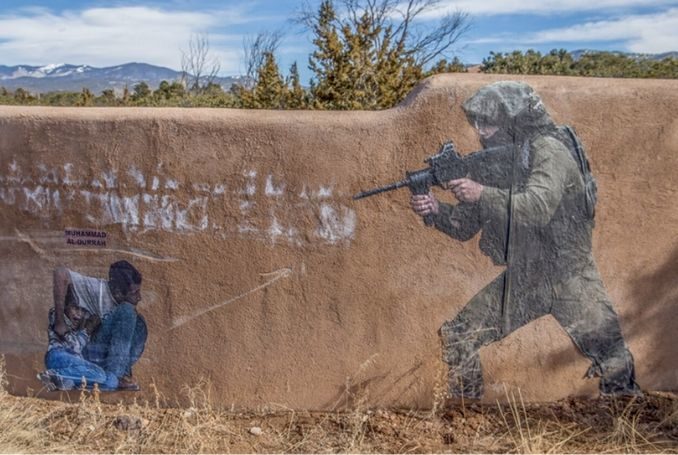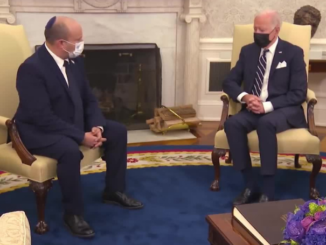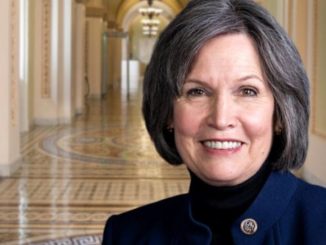
How can the US government criticize the racist practices of Israel, when it has never really confronted its own history of genocide and wars of extermination against the Native tribes of North America?
“Indians and wolves are both beasts of prey, tho’ they differ in shape.”
– President George Washington (1789-1797)
“The Arabs will have to go, but one needs an opportune moment for making it happen, such as war.”
– Israel’s first prime minister, David Ben-Gurion (1948-54 and 1955-63)
The United Nations, for the first time on May 15, 2023, officially commemorated the Palestinian Al-Nakba, or “catastrophe,” a national trauma that began in 1947-48 and continues to the present.
Member states of the General Assembly voted in November to approve a resolution recognizing the suffering of generations of Palestinians who have been under Israeli occupation since Zionist militias forcibly drove hundreds of thousands of them from their towns and villages to establish a Zionist state in Palestine. The United States voted against the resolution and boycotted the event.
The Nakba and Israel’s ongoing colonization project is a story rarely told in history books and classes. For over 75 years, Washington has used every means at its disposal to keep the Palestinian catastrophe from the American public. The question is why?
The answer has much to do with how similar the two countries are with regard to their national ideologies and histories.
How can the US government criticize the racist practices of Israel, when it has never really confronted its own history of genocide and wars of extermination against the Native tribes of North America?
While the UN has taken the long-overdue step to rebut the Israeli narrative that has denied the Nakba, the United States has yet to pass a stand-alone resolution apologizing to the Native people of the continental US for 300 years of violence, maltreatment and neglect.
No historical analogy is perfect. But, to understand why America continues to remain complicit in perpetuating the Palestinian catastrophe, it is essential to examine the parallels between the US and Israel in how they have chosen to engage with the Native peoples.
Both the United States and Israel began with conquest and with the goal of possessing and colonizing already inhabited lands—to cleanse the land of its Native inhabitants. Both histories reveal trails of deception, broken promises, asymmetrical force and indigenous populations pushed to the margins of society by the conquerors. The language of force, the rhetoric of justification, and idiom of violence used are strikingly analogous. Both, for example, have portrayed their brutal colonization projects as “settlement(s)” and the colonizers as “pioneers“ and “settlers.”
The 17th-century Puritan ideology of divine mission set in motion the pretext for an historic land grab in North America. Early in that century, Protestant clergyman, Richard Hakluyt, called for settlement in the New World, exhorting Englishmen to “lay claim to the land and take it as our own.” He argued that in order to gain a foothold, settlements and towns, rather than trading posts and forts (as the French had established) must be planted.
Like Hakluyt, Israel’s leaders have always been intent on laying claim to all of Palestine. Through war, false and unenforced “peace” agreements, illegal land grabs, forced expulsions and arbitrary laws and decrees, Israel currently rules over 78 percent of the Palestinian homeland.
The two countries have used religion to legitimize their land grabs and to ethnically cleanse the indigenous populations. The driving force behind the dispossession of Native American and Palestinians has been the myths of chosenness and exceptionalism; notions that imply supremacy.
The writing, oratory, and political speeches of the colonists, are replete with references to the colonies as the New Canaan, the “shining city upon the hill,” and a country blessed by God. Those same references are expressed today by US officials and politicians.
John Rolfe, one of the original founders of the 1607 Jamestown colony, noted that the colonists are “a peculiar people, marked and chosen by the finger of God, to possess (the land), for undoubtedly He is with us.” And in the Massachusetts Bay Colony (founded in 1628), its founder, John Winthrop, spoke of the Puritan covenant with God and that “we must consider that we shall be a city upon a hill. The eyes of all people are upon us.” The ideas of covenant and exceptionalism were internalized by America’s founders and are manifested in national policy to the present.
Like the religious sects from Europe that colonized North America on the belief that they had reached the Promised Land and that their culture and societies were superior to the Native Americans they encountered, Israel’s European founders, its officials, politicians and many of Israel’s Jewish citizens have expressed similar convictions.
In a 2014-2015 Pew Research poll, 48 percent of Israeli Jews said Palestinians should be transferred or expelled from Israel. And in a 2018 Haaretz-Dialog poll, when asked if they believe that the Jews are a chosen people, 56 percent of Israeli Jews said “yes.” The figure rose to 79 percent among self-identified right-wing respondents.
Though the leaders of the Zionist movement were essentially secular men, they used biblical references to establish land claims. Israel’s leaders have harnessed religious ideology to state power. They have co-opted the idea of divine election of religious Jews—that God had selected and entered into a covenant with his favored children to serve as a “light unto the nations,”—to advance their “settler” colonial movement. Jewish nationalists continue to use the Book of Genesis as their deed to the land of Palestine, claiming the “right” based on prior residence thousands of years ago.
By the 19th century, disease, warfare, massacres, and US removal policies had emptied the Indian population in the North. The fate of the Southeast Indian tribes was sealed when the US Congress passed the Indian Removal Act in 1830.
As a result of then-President Andrew Jackson’s ethnic cleansing policies, an estimated 100,000 Native Americans from 18 tribes were forced from their lands in the Southeast and transferred to Indian Territory (Oklahoma) on land considered undesirable for the white man. Many perished as the US army marched them westward. On one march, the Trail of Tears, some 6,000 Cherokees died as they were made to walk 1,200 miles to Indian Territory.
Palestinians have faced similar hardships as Israel executes its ethnic cleansing policies. Palestinians have known many Trail of Tears since the Nakba. The more than 750,000 Palestinians and their progeny who were made refugees by the establishment of the Jewish state, have never been allowed to return to their ancestral homeland, while Israel’s law of return, allows Jews worldwide to emigrate to Israel anytime they want. Israel continues to cover Palestinian land with illegal Jewish “settlements,” and the infrastructure to serve them.
By the 19th century, Puritan beliefs of divine covenant transformed into the notion of Manifest Destiny, a term coined by New York journalist John O’Sullivan in 1845. He wrote that nothing must interfere with the “fulfillment of our manifest destiny to overspread the continent allotted by Providence for the free development of our yearly multiplying millions.” To fulfill their goal of national expansion, white Americans attempted to physically and culturally vanish the Native people.
The “settler-pioneers” justified the theft of Indian land on the basis of the “emptiness theory” and nonuse; judgments based on their white cultural understanding of capitalizing upon land.
By the late 1800s, virtually all Native Americans were confined to reservations, surrounded by hostile “settlers” and military forts, and had become economic dependents of the US government. Although they fought bravely, Native tribes were overwhelmed by the superior firepower of the US Army. Their defeat led to the loss of millions of acres of land and confinement to virtual prisons (reservations) spread across North America.
The US Congress in 1887 passed the Dawes General Allotment Act which opened up communal tribal reservation land to white ownership. By 1934, when the Allotment Act ended, about 90 million of 138 million acres of Indian land had become white-owned.
Jewish colonists have similarly portrayed Palestine as an empty land, ripe for the picking. Israel’s leaders declared that it was the duty of heroic Jewish squatters to
redeem the “unused” land from the desert, eschewing the existence of thriving Palestinian farms and businesses. Zionist mythmakers fostered the image of Palestinian Arabs as backward, mostly primitive nomads who had no sovereignty over the land.
In his 1923 essay, “The Iron Wall,” Zionist leader, Vladimir Jabotinsky (1880-1940), argued that “Zionism is a colonizing adventure and therefore it stands or falls by the question of armed force,” and that morality and conscience could not dictate Zionist policy.
In 1937, polish-born Prime Minister David Ben-Gurion, in a letter to his son, wrote: “We must expel the Arabs and take their places….And if we have to use force…to guarantee our own right to settle in those places (Negev and Transjordan)-then we have force at our disposal.”
Israel’s’ current right-wing regime, like its predecessors, is engaged in carrying out Ben-Gurion’s vision of claiming the Negev. Tel Aviv is currently demolishing the homes of Palestinian Bedouins and transferring them to further uninhabitable lands in the Negev to make way for Jewish colonial “settlements.” The Bedouins are the only group of Palestinian citizens of Israel that still hold a sizable tract of land, despite the fact that Israel has, over many years, sought to move them to more arid areas.
Like the United States, Israel has carried out a policy of containment and concentration through superior military force. The imbalance of power between the Israeli occupier and the occupied has forced Palestinians onto two small reservation-like enclaves in the West Bank and Gaza Strip, about 22 percent of their historic homeland, over which they have no real authority.
Within these ever-shrinking noncontiguous enclaves, Palestinians are subjected to military checkpoints and patrols, widespread surveillance, arbitrary arrests, incarceration without trial, targeted assassinations, home demolitions, and daily harassment and humiliation by hostile soldiers and “settlers,” as well as other forms of state-sponsored terrorism.
Palestinians who struggle against occupation, which is their right under international law, are labeled terrorists and militants, while Israeli acts of violence against them are described as reprisals or defense.
In the American quest to conquer the West, a similar language was used. When the US cavalry won a military engagement against a tribe fighting for survival, it was described as a “battle,” but when Native Americans prevailed, it was a “massacre.” In today’s parlance, Apache leader Geronimo and Chief Joseph of the Nez Perce would be called terrorists.
The history of the United States and Israel raises a compelling question: What would both countries be today if their forebearers had believed in working with, learning from and sharing the land with the indigenous people? Removing and inflicting injustices upon them has reinforced in both the US and Israel, political cultures of imperialism and supremacy.
The loss of home, dispossession and exposure to political and physical violence that has shaped the lives of Native Americans and Palestinians are crimes against humanity. But in spite of the hardships, trauma and attempts to erase them, Native American and Palestinians have survived and have grown stronger. Neither group has accepted foreign domination; and their culture of resistance continues to inspire.

– Dr. M. Reza Behnam is a political scientist specializing in the history, politics and governments of the Middle East. He contributed this article to The Palestine Chronicle.







